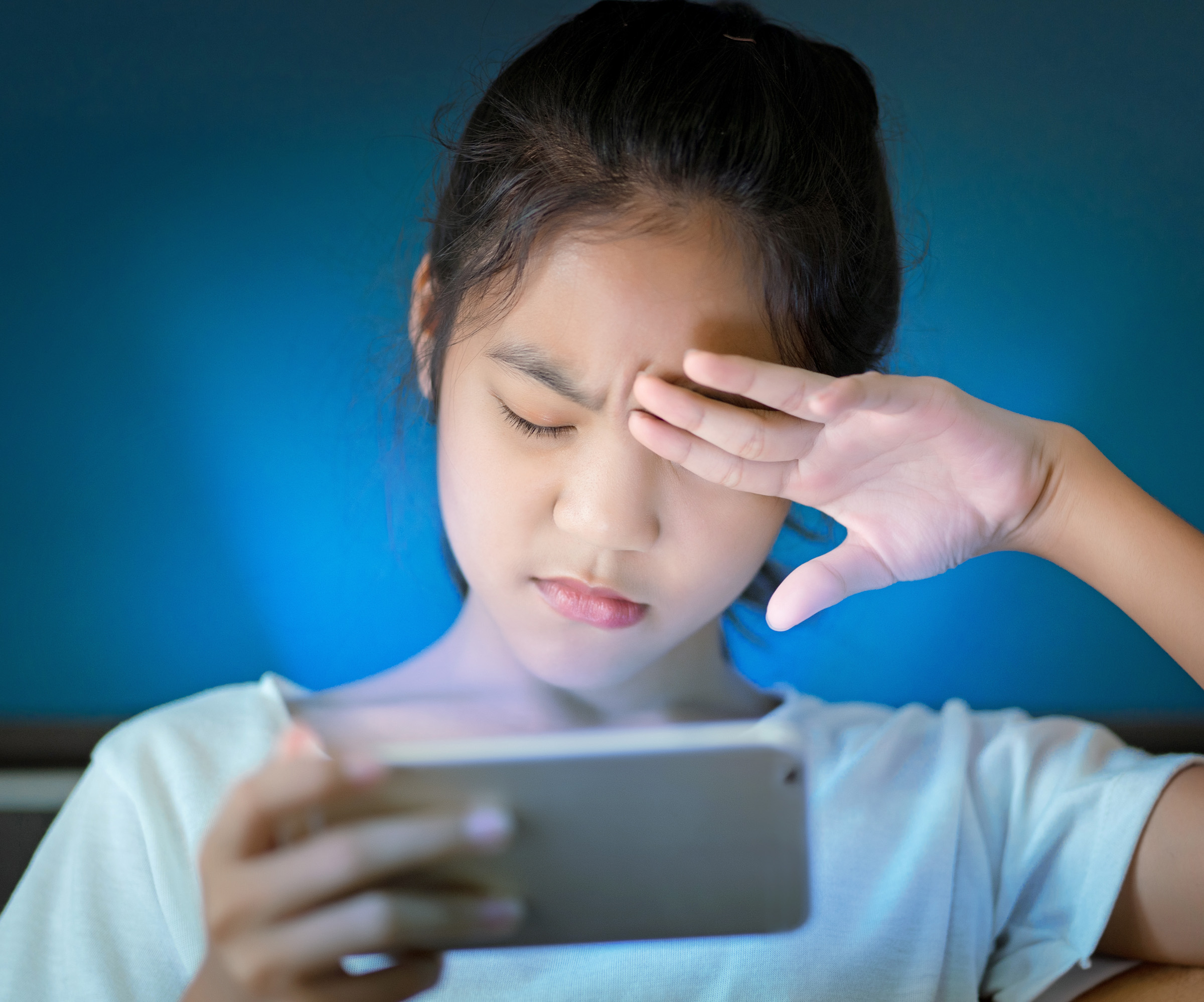Children and their phones, iPads and gaming devices are inseparable today. Most are growing up with a wide selection of electronic devices at their fingertips. They can’t imagine a world without the internet, smartphones and tablets. Although, all that reading and playing games on their handheld devices may be harmful. But it’s not just kids who are getting too much screen time. Many parents struggle with over use of screen time themselves. So it’s important to understand how too much screen time could be harming everyone in the family.
 Children can experience at least one of the following symptoms after being exposed to more than two hours of screen time per day:
Children can experience at least one of the following symptoms after being exposed to more than two hours of screen time per day:
- Headaches
- Neck/shoulder pain
- Eye strain, dry or irritated eyes
- Reduced attention span
- Poor behavior
- Irritability
Any of these symptoms could potentially affect academic performance and social interactions.
The worldwide rapid rise of nearsightedness has been linked to increased use of and exposure to electronic devices. However, spending more time outdoors, especially in early childhood, can decrease the progression of nearsightedness.
Blue Light can be harmful
 The LED screens of computers and portable digital devices emit a broad spectrum of visible light. Most of these light rays are harmless, but a portion of the light emitted by these screens is relatively high-energy visible light called “blue light.”
The LED screens of computers and portable digital devices emit a broad spectrum of visible light. Most of these light rays are harmless, but a portion of the light emitted by these screens is relatively high-energy visible light called “blue light.”
Blue light has shorter wavelengths and higher energy than other visible light rays. Some laboratory research suggests certain bands of blue light may be harmful to the light-sensitive retina of the eye over time.
Blue light also plays an important role in regulating our body’s circadian rhythm. This basically is an internal clock that’s running in our brain and cycles between alertness and sleepiness at regular intervals over a 24-hour period.
Too much exposure to blue light at the wrong time of day can disrupt a person’s normal sleep/wake cycle, which can have serious health consequences. Sleep disruption can be especially problematic for children, leading to daytime drowsiness and poor performance in school. Some authorities feel that disruption of the sleep/wake cycle also can eventually lead to weight gain and obesity-related health problems.
Research has shown that people who experience disrupted 24-hour cycles of sleep and activity also are more likely to have mood disorders, lower levels of happiness and greater feelings of loneliness.
How to cut back on screen time
- Set a limit on daily screen time. Make it clear to your kids and stick to it.
- Encourage your child to spend some of that screen-free time outdoors while it is still light.
- Establish screen-free zones: For example, no smartphone use for anyone in the family in the car, at restaurants, or at the dinner table.
- No screens in the bedroom when it is time for bed. No exceptions.
- As parents you can be a model for moderate screen use. Show your children, with your own behavior, how to live a rich, varied and healthy life where all habits are practiced in moderation.
It is also very important to teach your child good eye habits, below are few tips from experts:
- You can set a kitchen timer or a smart device timer to remind them.
- Alternate reading an e-book with a real book and encourage kids to look up and out the window every two chapters.
- After completing a level in a video game, look out the window for 20 seconds.
- Pre-mark books with a paperclip every few chapters to remind your child to look up. On an e-book, use the “bookmark” function for the same effect.
- Avoid using a computer outside or in brightly lit areas, as the glare on the screen can create eye strain.
- Adjust the brightness and contrast of your computer screen so that it feels comfortable to you.
- Use good posture when using a computer and when reading.
- Encourage your child to hold digital media farther away, 18 to 24 inches is ideal.
- Create a distraction that causes your child to look up every now and then.
- Remind them to blink when watching a screen.
Finally, it is very important to make sure your child gets a regular eye exam by a pediatric ophthalmologist or optometrist. This will help monitor your child’s vision and eye health.

